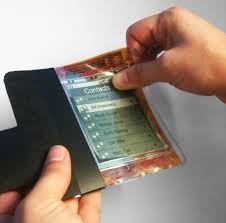Bendable iPhones were a disgrace for Apple, but flexible electronics, including displays that bend, are here to stay. On Friday, Defense Secretary Ashton Carter announced the creation of a Manufacturing Innovation Institute for Flexible Hybrid Electronics (FHE-MII).
The institute is a partnership among the U.S. government, tech companies, local governments and academic institutions. Its aim is to develop the flexible electronic industry to manufacture devices such as circuit boards, sensors, antennas, microchips, batteries and screens that bend, usually using thin plastic sheets, reports Mercury News.
It would be based in San Jose, California, with Malcolm Thompson as its executive director. Pentagon allocated $75 million over five years for the venture, while the private sector will contribute another $96 million. This has the potential of making San Jose another tech hub like Silicon Valley.
Among the members of the consortium are Apple, Boeing, GE, GM, Lockheed Martin, Motorola Mobility and Qualcomm. Educational institutions that will be part of FHE-MII are Cornell, Harvard, Stanford, New York University and Massachusetts Institute of Technology, reports The Verge.
Various companies are experimenting with such technologies. The firms gave the public a peek of their inventions at the giant wind tunnel in Moffet Field.
Detroit-based Visca is developing, for instance a plastic strip that a person could use to determine if he is dehydrated or is suffering from concussion. Another device being developed by Dr. Massod Atashbar and researchers at the Western Michigan University is an ultra-lightweight sensor placed on a patient's skin, which flexes when he moves, to measure vital signs.
The companies are hoping their bendable devices would have a wide range of use such as bandages that detect infections without being removed from the body and smart coatings for ships that detects breaks on its hulls. Carter admits, "We don't know all the applications this technology will make possible," and adds, "That's the remarkable thing about innovation."


